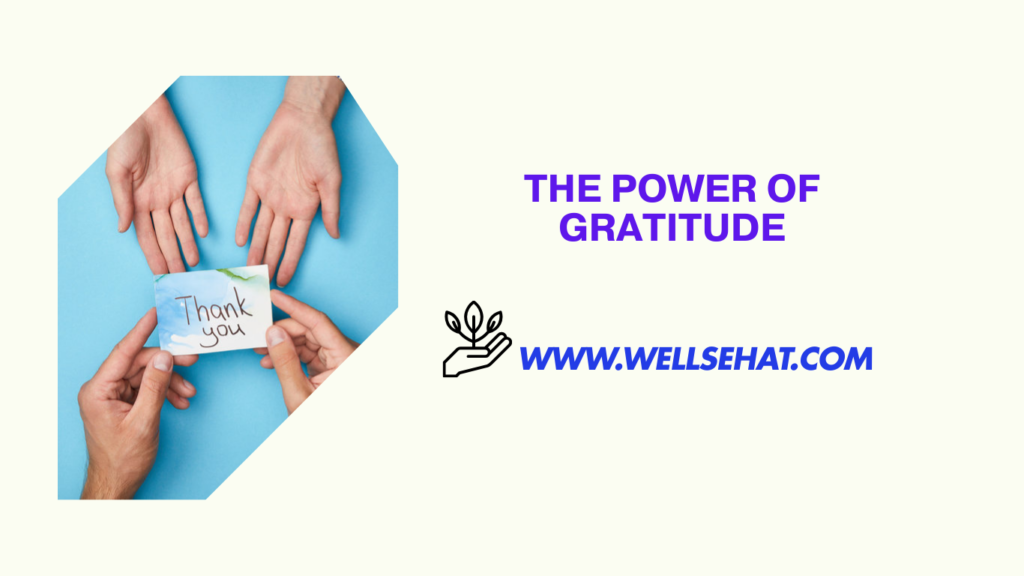Amid the hustle and bustle of modern society, we can afford to be careless with the bliss that is within our reach. This practice, nevertheless, may have a tremendously positive and powerful effect on our psychological state and compliance levels. Attending to the things we have to be grateful for can help us to have a more positive attitude and transform our interpersonal relationships and overall emotional strengths. It is high time we were to discover the potential and the ways that gratitude can work in the everyday routine.
Understanding Gratitude
Gratefulness is not a mere thank you.’ It is a love for individuals, events, and objects that bring in the positive in life The society also has a positive outlook in life. Scholars have found that gratitude can predict enhancements in psychological well-being. Personality and Individual Differences, a top-tier psychological journal, revealed that depressed people who embraced gratitude consumed fewer depressive symptoms and had higher levels of satisfaction with life.
In practicing gratitude, the brain’s reward pathways are activated releasing dopamine and serotonin among other brain chemicals. This neurochemical reaction can work positively on our mind thus making us feel happy. Also, gratitude contributes to being able to build a measure of protection against adversity by enabling one to focus on the positive, regardless of the situation.
An Introduction to Appliances of Gratitude
Improved Mental Health: Gratitude is said to reap benefits such as signifying reduced symptoms of anxiety and depression among people. When we learn to look at things in a positive way or have positive sentiments to which to cling in times of stress, one of these is to look at what we are grateful for in life.
Enhanced Relationships: It was evident that gratitude strengthens the relationship with other people. It is helpful to thank people because it strengthens the bond, which may be friendship or acquaintance because people tend to do nice things for those they feel are friendly in return.
Increased Resilience: When people are thankful, they are more likely to cope well with purposeful stress. , using positive aspects of their lives, they can address hurdles in their lives with a new positive angle.
Better Sleep: You take a gratitude journal which has been proven to help in improving the quality of sleep. When you think of all the positive things you have been through the day it creates a sense of order as you sleep.
Greater Life Satisfaction: Gratitude replaces discontent with contentment and discontentment is a ruiner, so gratitude makes for a happier life. It highly values and tunes up our concern with daily existence and occurrences.
Read More… The Power of Connection Building Healthy Relationships for Better Mental Health
How to Cultivate Gratitude
Incorporating it into your daily practice of thankfulness doesn’t demand a lot of time or effort. Here are some practical strategies to help you get started:
Keep a Gratitude Journal: Practice acts of gratitude, that is, spend five to ten minutes each day and jot down three to five things you are grateful for. They can be useful in helping you focus on the positive aspects of life and having a constant reminder to stay grateful.
Practice Gratitude Meditation: Spend some time before or after work observing moments of gratitude and focusing on what is worth being grateful for. Think of these things and then let yourself and your heart, chakra, aura, or spirit experience or recall the feeling of gratitude.
Express Appreciation: At least once a day, try to thank someone for something they’ve done. It may be in a written message, through a mobile phone then left unspoken by words, then in the form of a card, through a personal verbal message then through a phone call; appreciation has the ability to make relationships and he/she feels much happier.
Create a Gratitude Jar: Spend your time and make entries in slips and keep them in a jar where you can jot down the times you are thankful for. At any point that you feel down you can read the notes in order to reign in the positives in your life.
Focus on the Present: Mindfulness should be practiced to make you more aware of the presence. Exercise gratitude, and recognize the simplest of pleasures and happiness that you can think of: a cup of coffee, the sunset.
